Key article insights:
International veterinary internships are about gaining exposure to diverse animal care systems, clinical methods, and wildlife conservation practices.
International veterinary internships provide the opportunity to work with different animal species such as horses, dogs, wild animals, sea turtles, and elephants. These are programs where interns can practice in conditions different from those in their home country.
Veterinary internships abroad also present ethical learning moments, such as:
These experiences develop professional maturity and ethical reasoning, which are core necessities for future veterinarians.
Veterinarians must communicate clearly with pet owners, farmers, and conservation teams — and that skill becomes even more critical in international settings. Interning abroad strengthens cross-cultural communication by teaching students to explain medical concepts clearly, adapt to diverse client expectations, and collaborate in multilingual teams.
This is particularly valuable for students planning careers in:
Admissions committees and veterinary employers emphasize experience, adaptability, and demonstrated commitment to animal care. Competitive candidates demonstrate diverse veterinary hours, exposure to multiple species, and clear evidence of adaptability and commitment to animal welfare.
International veterinary internships often provide:
These experiences align directly with the competencies that veterinary schools and employers publicly state they value.
International placements often intersect with community health and policy.
Students may participate in:
These programs directly support global public health efforts and often align with initiatives supported by the United Nations Sustainable Development Goal #15 (Life on Land).
In Summary
Veterinary internships abroad are immersive professional development experiences that expand clinical competence, ethical awareness, cultural intelligence, and understanding of global health.
Students learn beyond textbook medicine into real-world veterinary problem-solving, often in environments that demand flexibility, empathy, and decisive action.
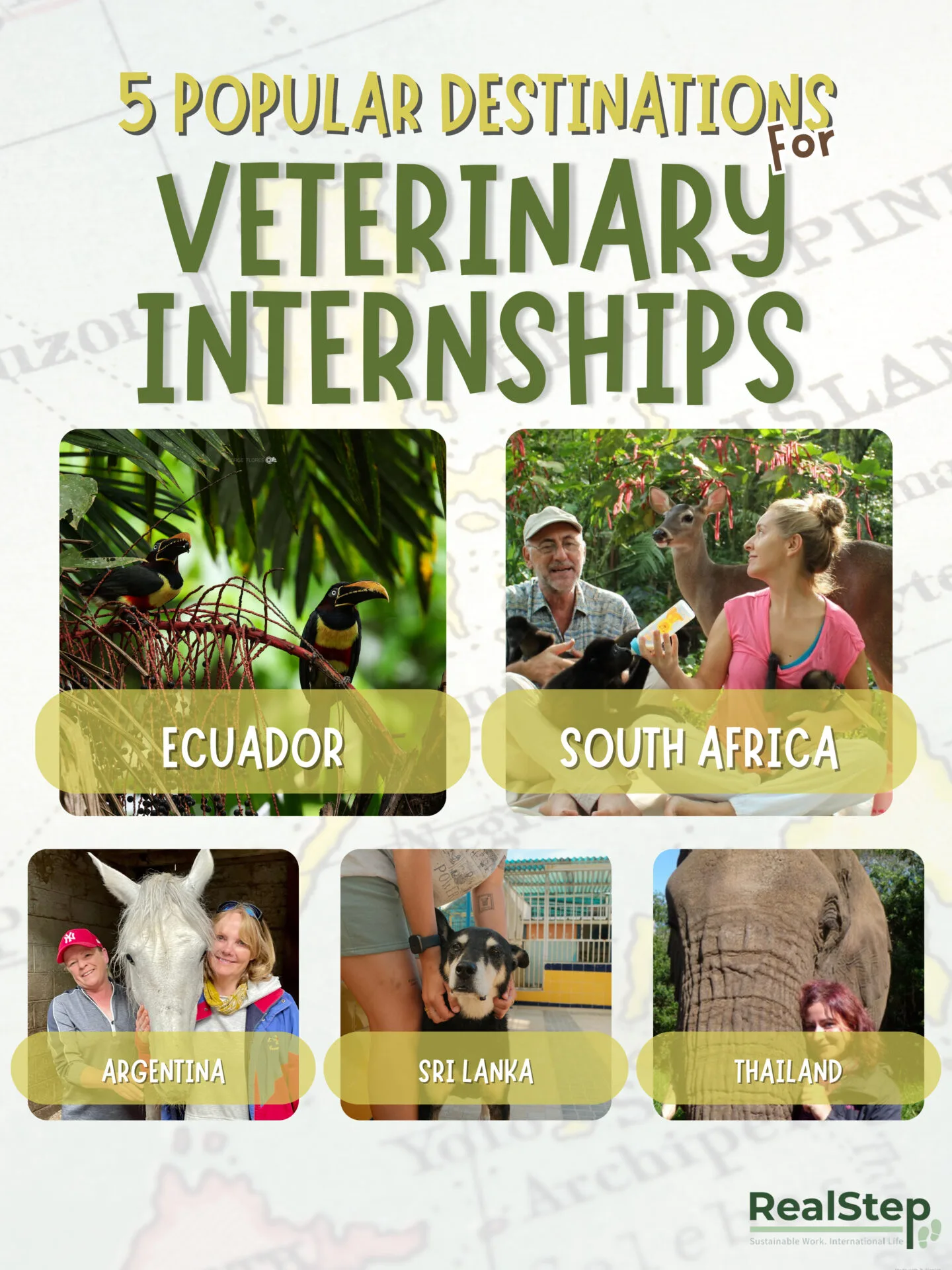

International veterinary interns typically require one of the following, depending on the host country and length of stay:
Visa requirements vary significantly by destination, duration, and whether the internship is paid or unpaid.
Important: Always confirm visa eligibility and documentation requirements directly with your placement provider and the official immigration authorities of the host country before making travel arrangements.


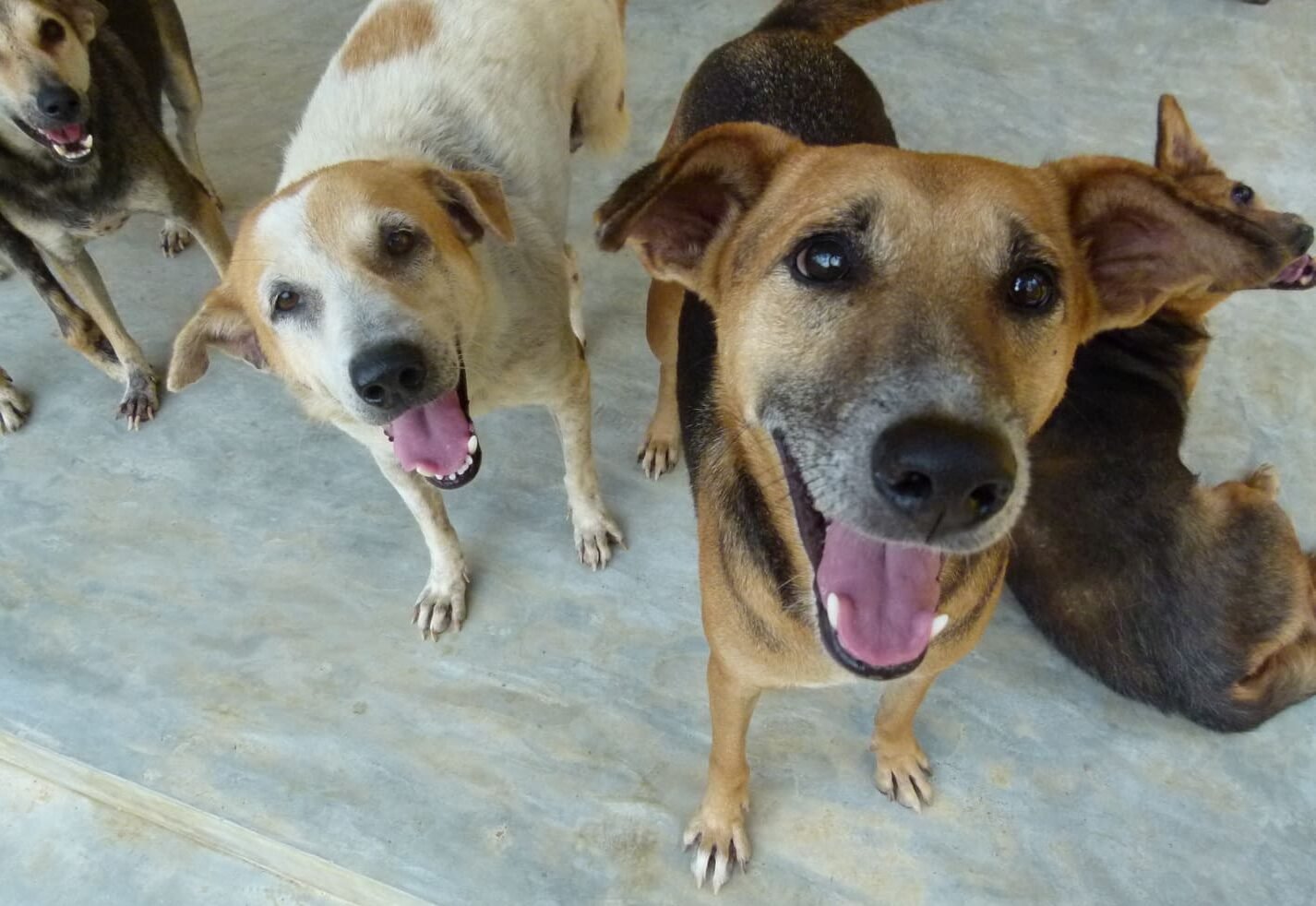
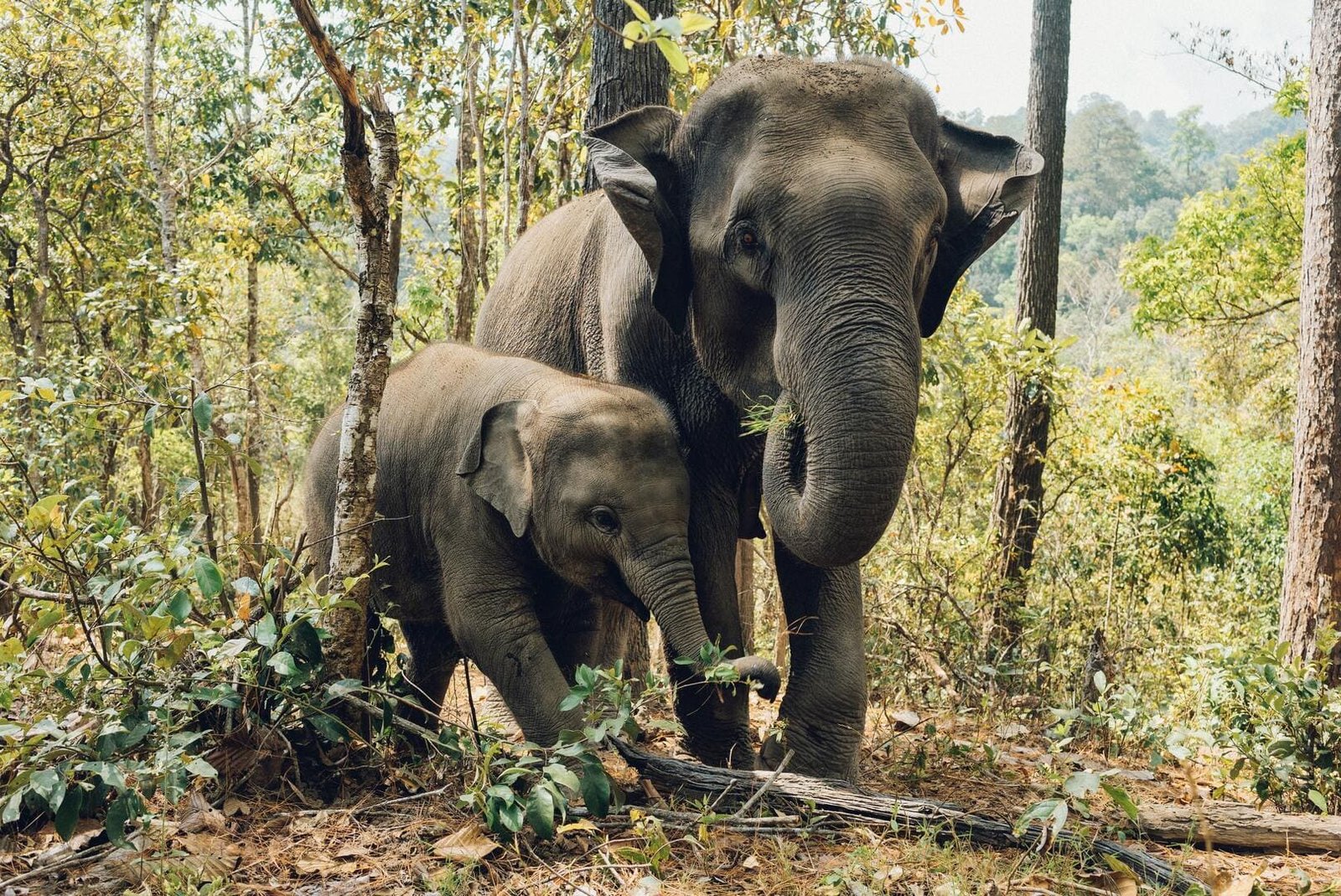

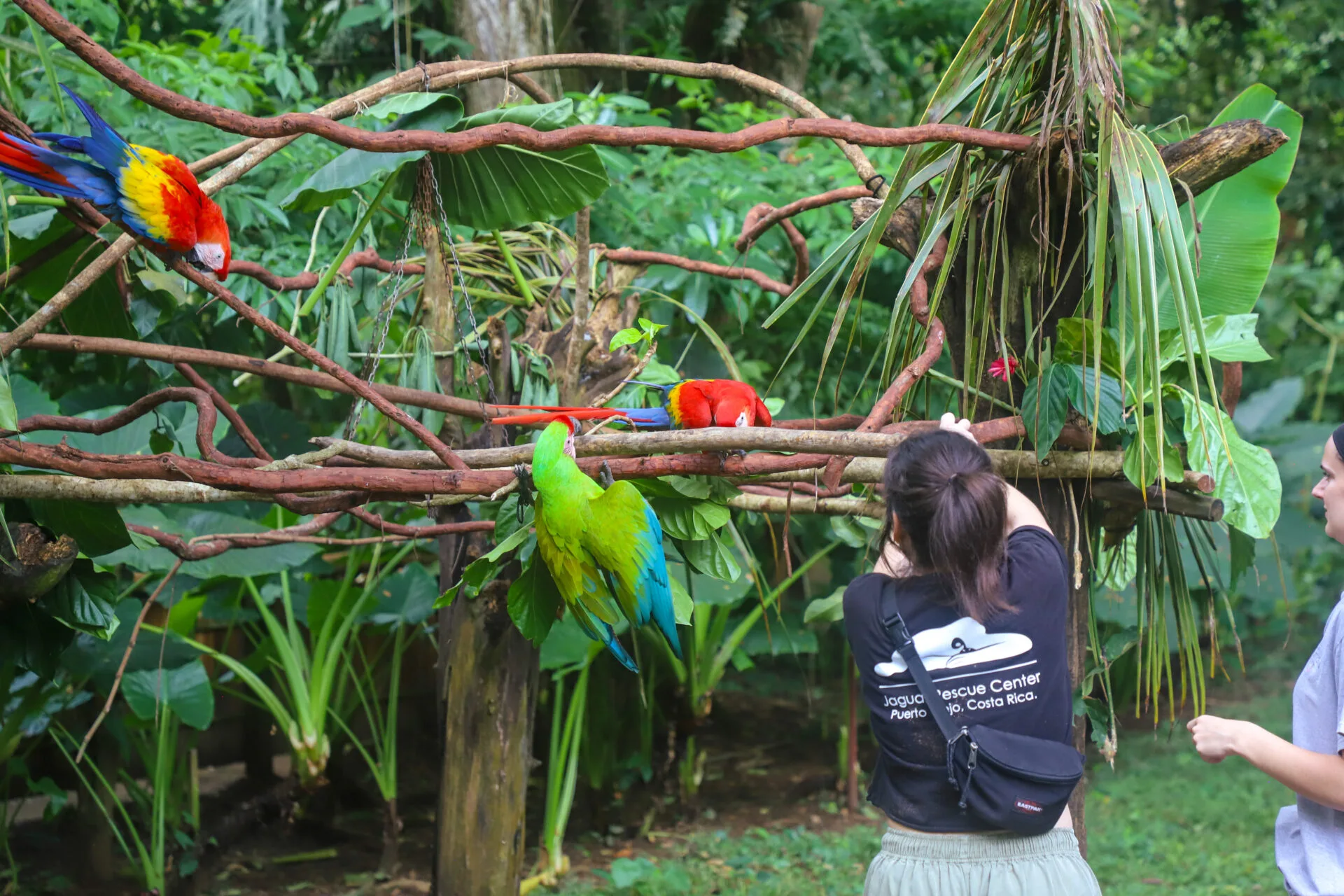
Located in the Amazon rainforest, the centre collects animals abused, orphaned, or rescued from illegal trade in Ecuador. It is a unique opportunity to work with experts while exploring wild species from the Amazon rainforest.
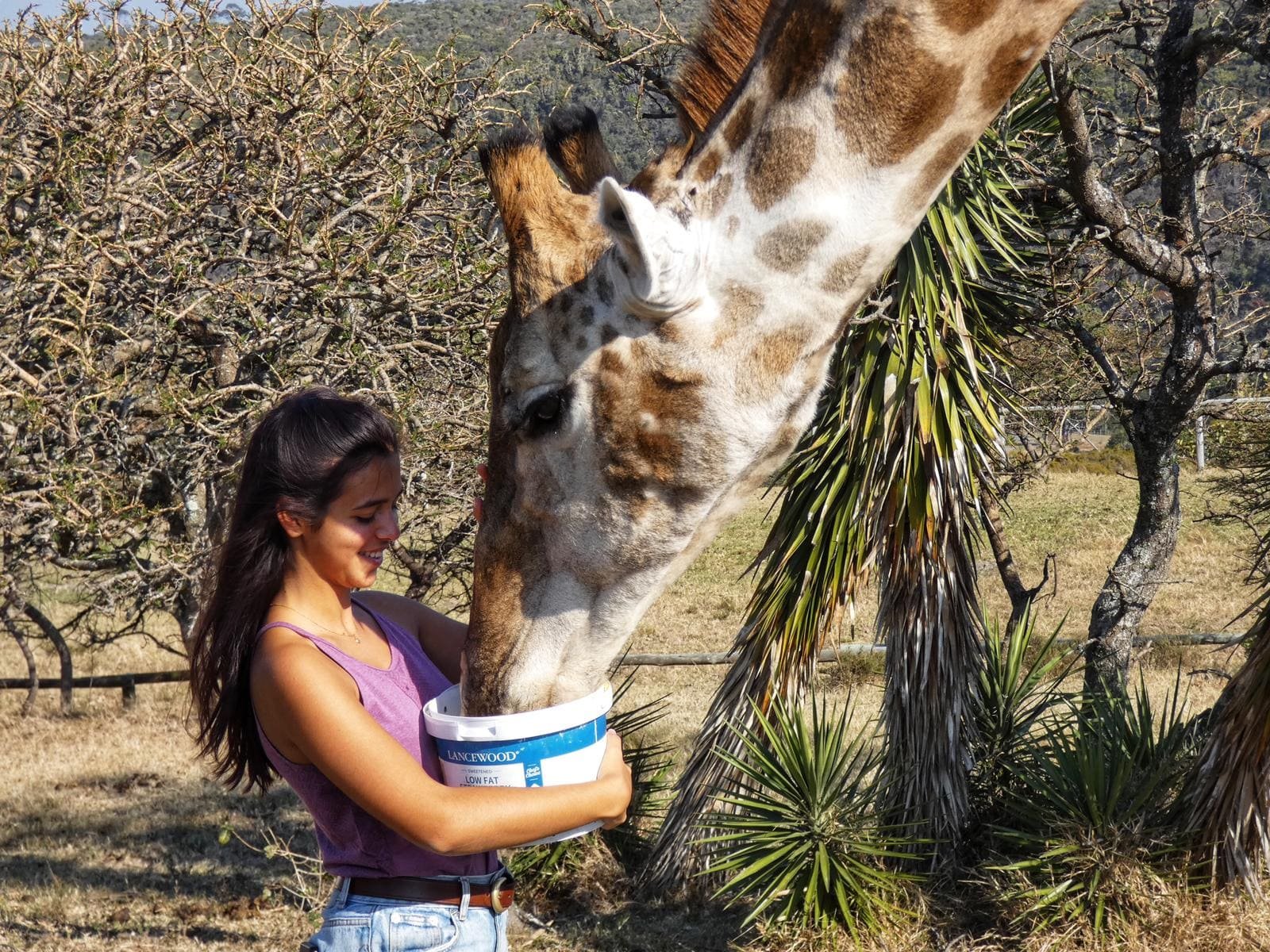
This veterinary internship takes place in South Africa with our partner NGO. Interns are supervised by experts and benefit from in-depth feedback throughout the project. Students join a multicultural team and work on a reserve contributing to wildlife monitoring, disease prevention, and reserve health management.
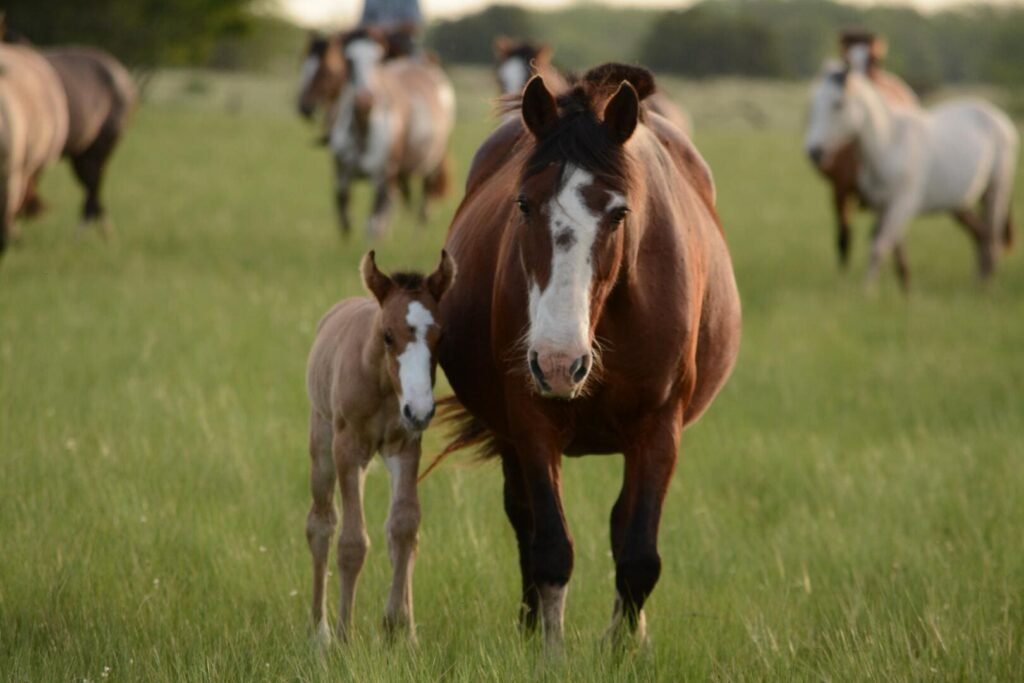
The Horse Shelter in Córdoba welcomes abandoned and abused animals. In Córdoba, it is common to use horses to collect recyclable waste in the streets, such as cardboard and plastic. This work is usually done by people who do not have the resources to take care of the horses. During this internship, you focus on the rehabilitation of abused horses, clinical treatment, and community awareness initiatives.

This internship in Sri Lanka offers a way to participate in an animal welfare project. Students assist in sterilization campaigns, behavioral observation, shelter management, and public health awareness.
Gain experience in the province of Chiang Mai, Thailand, at their Elephant sanctuary. Elephants are rescued from tourist activities and placed in a refuge where they are cared for and can live in a natural environment.
Discover more about animal internships by RealStep here.
Language barriers
Communication with local clients may require adaptation.
Different veterinary practices
Equipment, protocols, and resources may differ significantly.
Emotional exposure
Working with abused or injured animals can be emotionally demanding.
Look for programs that explicitly mention:
Verify supervision by licensed veterinarians and ask about daily responsibilities before committing.
Yes. Many programs offer:
Undergraduates usually assist rather than perform medical procedures.
Often require:
Did you like this article ?
Share it on social media!
In this article :
Similar items
Our latest articles


